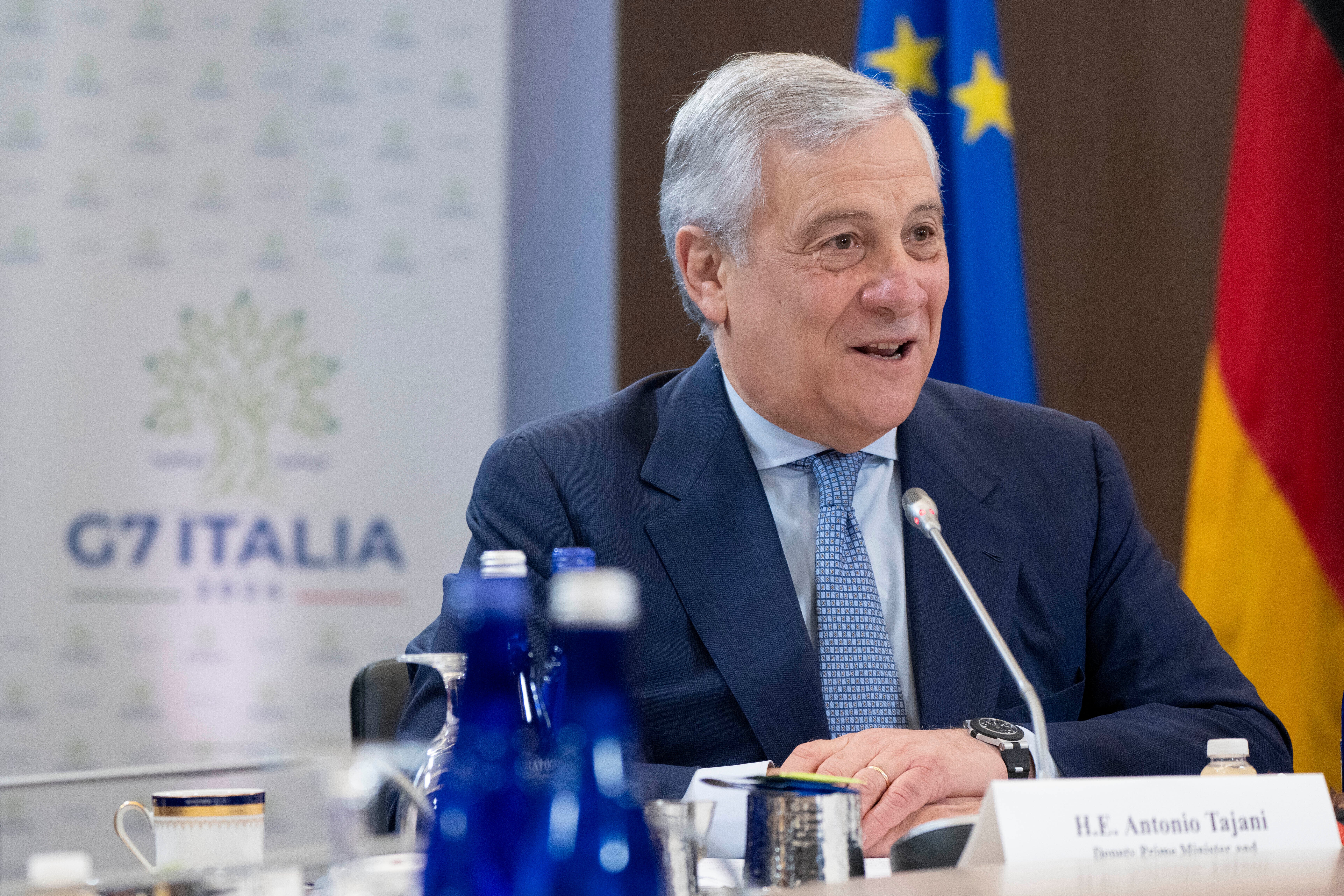Italy plans to return an ambassador to Syria to reflect new diplomatic developments, minister says
Italy is planning to send an ambassador back to Syria after a decade-long absence, in a diplomatic move that could spark divisions among European Union allies

Your support helps us to tell the story
From reproductive rights to climate change to Big Tech, The Independent is on the ground when the story is developing. Whether it's investigating the financials of Elon Musk's pro-Trump PAC or producing our latest documentary, 'The A Word', which shines a light on the American women fighting for reproductive rights, we know how important it is to parse out the facts from the messaging.
At such a critical moment in US history, we need reporters on the ground. Your donation allows us to keep sending journalists to speak to both sides of the story.
The Independent is trusted by Americans across the entire political spectrum. And unlike many other quality news outlets, we choose not to lock Americans out of our reporting and analysis with paywalls. We believe quality journalism should be available to everyone, paid for by those who can afford it.
Your support makes all the difference.Italy plans to send an ambassador back to Syria after a decade-long absence, the country’s foreign minister said, in a diplomatic move that could spark divisions among European Union allies.
Foreign Minister Antonio Tajani, speaking in front of relevant parliamentary committees Thursday, announced Rome’s intention to re-establish diplomatic ties with Syria to prevent Russia from monopolizing diplomatic efforts in the Middle Eastern country.
Moscow is considered a key supporter of Syrian President Bashar Assad, who has remained in power despite widespread Western isolation and civilian casualties since the start of Syria’s civil war in March 2011.
Peaceful protests against the Assad government — part of the Arab Spring popular uprisings that spread across much of the Middle East — were met by a brutal crackdown, and the uprising quickly spiraled into a full-blown civil war. The conflict was further complicated by the intervention of foreign forces on all sides and a rising militancy, first by al-Qaida-linked groups and then the Islamic State group until its defeat on the battlefield in 2019.
The war, which has killed nearly half a million people and displaced half the country’s pre-war population of 23 million, is now largely frozen, despite ongoing low-level fighting.
The country is effectively carved up into areas controlled by the Damascus-based government of Assad, various opposition groups and Syrian Kurdish forces.
In the early days of the conflict, many Western and Arab countries cut off relations with Syria, including Italy, which has since managed Syria-related diplomacy through its embassy in Beirut.
However, since Assad has regained control over most of the territory, neighboring Arab countries have gradually restored relations, with the most symbolically significant move coming last year when Syria was re-admitted to the Arab League.
Tajani said Thursday the EU’s policy in Syria should be adapted to the “development of the situation,” adding that Italy has received support from Austria, Croatia, Greece, the Czech Republic, Slovenia, Cyprus and Slovakia.
However, the U.S. and allied countries in Europe have largely continued to hold firm in their stance against Assad’s government, due to concerns over human rights violations.
___
Associated Press writer Abby Sewell contributed from Beirut.